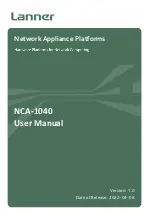
SOLIDYNE
AUDIMAX 362
Pág. 17
f) Measure at the Belar the residual level of the
Left channel. It will be better than 60 dB.
g) Verify channel separation at the 20 Hz –
12.000 Hz range. This must be better than 50
dB (60 dB typical).
4.5
Measurement of Residual Noise
Open the jumpers JL & JR.
Use a good Audio Voltmeter with A weighted filter
connected at the Left and Right audio outputs of
the BELAR modulation monitor. Use as reference
4 Vpp sine wave.
Values better than 92 dBA must be measured (94
dBA is typical value)
4.6
Audio distortion measurements
Connect a good distortion measurement set like
System ONE or Sound Tech ST 1710A to the Left
& Right audio outputs of the BELAR set. Values
under 0,01 % must be measured at 1 kHz
Since Belar has it distortion floor at 0,01%, in
order to measure the real distortion of 362 stereo
coder, is recommended to use a procedure not
based on modulation monitors. Proceed this way:
a) Connect to ground Test Point
TP1
in order to
cancel 19 KHz Pilot
b) Then, connect a very low distortion audio
generator at both inputs
JL
&
JR
. This will
cancel 38 Khz subcarrier. Connect a good
THD distortion measurement set at the MPX
output of stereo coder. Adjust to minimum
value the THD meter.
c) Use
the monitor output of the THD
measurement set to analyze the distortion
products in order to separate 38 KHz residual
and noise from the distortion components. Use
a Tektronix 5L4 N analyzer, or TiePie FFT
HS3 probe, or SoundTech Lab software, etc.
Identify the harmonics of 1 KHz and calculate:
(
)
2
1
2
2
2
4
3
2
1
100
Κ
+
+
+
×
=
H
H
H
H
Distorsión
H1
= Level of fundamental tone.
Hn
= Level of harmonics (reduced by the gain set
of the THD meter).
Verify that the distortion level is fewer than 0,003
% at 1 KHz.
Summary of Contents for AUDIMAX 362
Page 2: ...P g 2 AUDIMAX 362 SOLIDYNE...
Page 4: ...P g 4 AUDIMAX 362 SOLIDYNE...
Page 18: ...SOLIDYNE AUDIMAX 362 P g 18...



































